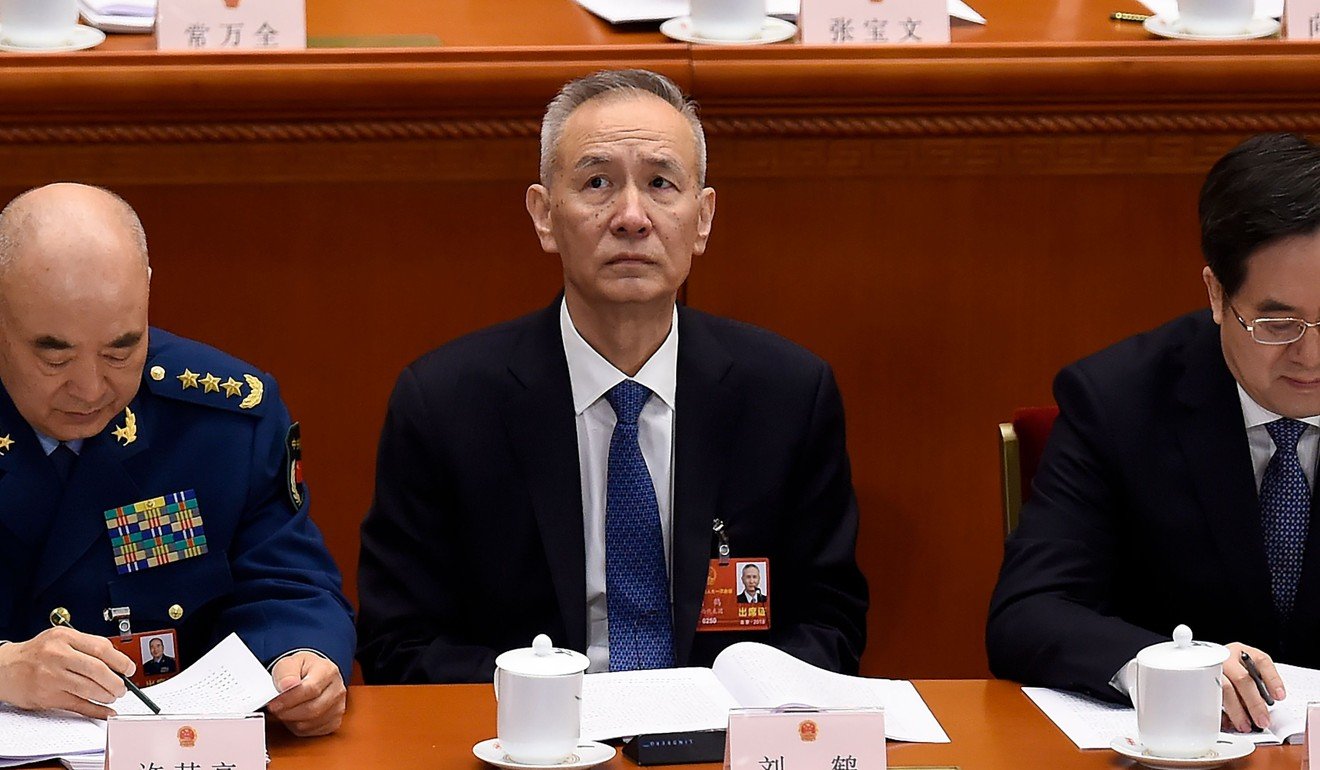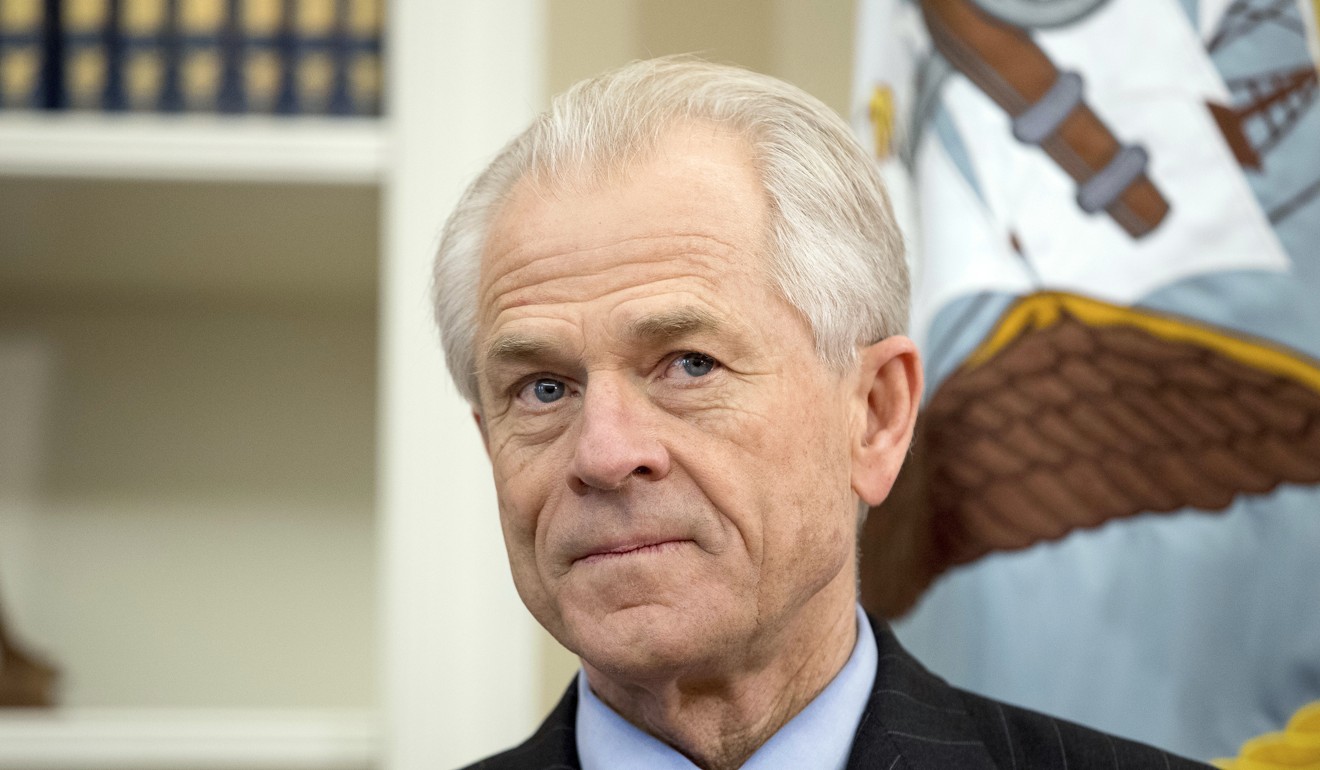
A nasty US-China fight is inevitable. But it needn’t be terminal
Forget the ‘Beast from the East’ – the real storm ahead is a geopolitical one in Sino-US ties. Trump’s sacking of Tillerson, his U-turn on North Korea and his beating of a trade war drum all portend a serious cold spell ahead
The National People’s Congress, which ends its annual session on March 20, will give Xi an even stronger mandate following the passage of the constitutional amendment to repeal the term limits on the presidency, clearing the way for him to rule indefinitely.
As China beats its war drum, who should hear its call?
According to US media reports, Trump is poised to unleash a major package of steep tariffs and investment restrictions that will target China.
The US Politico news site reported on Tuesday that after the top US trade official presented him a package targeting US$30 billion a year in imports from China, Trump asked for an even bigger number.

This followed reports that his administration had asked for a reduction of US$100 billion in the US trade deficit with China – nearly a third of the annual disparity – and that US officials had asked Liu He, Xi’s most trusted economic adviser, to relay this message when Liu was in Washington this month.
With the key moderates all out, Trump’s administration will get more assertive and hawkish on the international front, particularly towards China. Tillerson’s replacement, Mike Pompeo, is well known for his tough stance on China and said in January that China was as “big a threat to the US” as Russia.
Cohn’s resignation would give Peter Navarro, Trump’s top trade adviser, a freer hand to promote his economic protectionism theories and strengthen his influence over Trump. Previously, Navarro reported to Cohn, who reportedly crimped his influences. Navarro is known in the US for his tough views on China through a book called Death by China: Confronting the Dragon – A Global Call for Action, which highlights the dangers of China’s economic and military rise.

Now true to his unconventional and impulsive style, Trump, who last year traded barbs with Kim and vowed there was no way he would meet him, has done an about-face. So there is one less restriction for him to get tough on trade with China.
WATCH: What to expect when Donald Trump meets Kim Jong-un
With Trump facing tough mid-term congressional elections this year, he has already unveiled his 2020 campaign slogan – “Keep America Great” – and has finally managed to surround himself with loyalists who buy into his America First agenda and his other 2016 campaign promises.
To China’s credit, the Chinese leadership has remained calm in front of the gathering storm.
China’s foreign minister and trade minister have warned there would be a “necessary and justified response” in the event of a trade war with the US. Other than that, state media have remained largely quiet on the issue, reflecting the prevailing government attitude of waiting for Washington to make the next move.
Why China’s silence on Xi’s term limits move portends trouble
Despite the worries that a trade war could set back Sino-US relations, there are also good reasons to believe that the overall tone and structure of Sino-US ties can withstand the headwinds.
Even if the countries get involved in more intense confrontations over issues like trade and US-led efforts to contain China, they can still strengthen cooperation on terrorism and other international issues.
But the focus, at least for the foreseeable future, will be on the confrontation.
Xi may want China to play an important role in regional and international affairs because of its economic strength and military rise. But transforming the domestic economy is still the top priority and for China to realise its goals of becoming a moderately prosperous society by 2020 and a modern country by 2035, finding ways to avoid a direct and full confrontation with the US is still in its best interests.
That explains why China sent Yang Jiechi, the state councillor in charge of foreign affairs, and Liu to Washington within a month of each other to try to defuse the tensions over trade. Both seemingly failed to make a breakthrough.
So for the short term, a nasty fight is inevitable but as the Chinese saying has it: out of blows, friendship grows. Hopefully, a period of friction and confrontations can help the two countries find the new equilibrium needed to get their relations back on track and moving forward. ■
Wang Xiangwei is the former editor-in-chief of the South China Morning Post. He is now based in Beijing as editorial adviser to the paper

